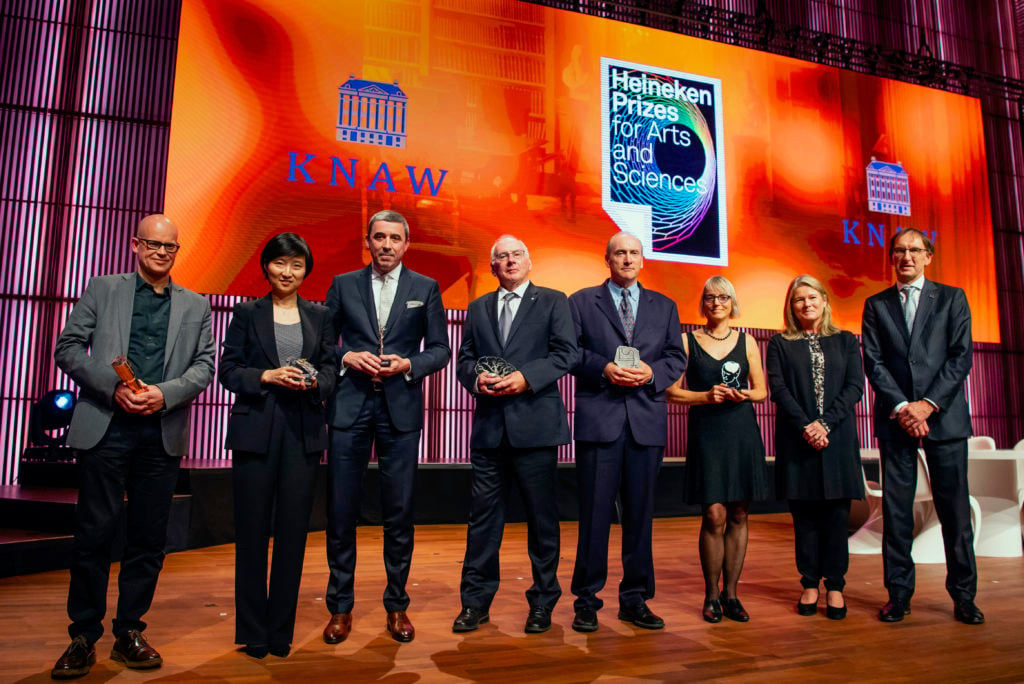What happens when art and commerce collide? That’s what Dutch artist Erik van Lieshout is exploring in his upcoming exhibition, “BEER,” at Anton Kern Gallery.
The centerpiece of the show, a deeply personal film, chronicles the artist’s rocky relationship with the brewing giant Heineken, which began in March 2018 when the artist was awarded the prestigious €100,000 ($115,000) Heineken Art Prize, described by dealer Anton Kern as “the Dutch equivalent to the Turner Prize.”
Shortly after van Lieshout won, an investigative report in the Dutch national newspaper NRC Handelsblad exposed that Heineken staff in Africa were subject to sexual harassment, alleging that a number of women were pressured into having sex with their supervisors and were to frequently groped.
Speaking to a reporter from the regional Dutch newspaper Weekblad Voor Deurne, van Lieshout criticized Heineken for the scandal, which quickly got back to the brewer—and from there, the relationship deteriorated.
The artist says a public relations company working on behalf of Heineken put him under pressure to withdraw his comments.
“They tried to censor me,” van Lieshout told artnet News. “The jury gave me the prize because they like that I’m a critical artist. But as soon as I criticize them, they don’t like it.”
In the wake of the unfolding scandal, the artist filmed himself grappling with the ethics of accepting the prize in light of the damaging allegations. Speaking on camera in the work on show at Anton Kern, he says “they’re a terrible company, they’re raping all over Africa,” labeling them “colonist exploiters.”
Despite the confrontational nature of the project, van Lieshout insists he isn’t targeting Heineken and doesn’t have a personal problem with the brewer, emphasizing the corporation’s support of the arts.
“The prize is a very good thing,” he says. “But on the other side, you also have to be yourself and be critical of what they are doing in Africa.” In the film, he admits that criticism and confrontation are key components of his work. “I need conflict to succeed,” he says.
The artist says he seriously considered returning the prize money to Heineken, but decided to keep it to finance work that addresses what happens when artistic freedom intersects with corporate interests. in the end, he spent half his prize money on the production of the film, and the other half financing a pharmacy in an under-served town in Central Africa in an effort to help some of the communities that Heineken’s marketing practices have hurt.
A Heineken spokesperson told artnet News in an email “Of course we believe in artistic freedom and don’t want to interfere with Erik’s work or opinions. Attention for the working conditions of the brand promoters only stimulates us to continue to focus on this important topic to create a safe working environment for the promoters.”
Speaking to artnet News, Kern said the brewer is aware of the project and is sending a representative to the opening, but he doesn’t expect any backlash.
“In times like these, where people tread very carefully Erik is somebody who questions things. He goes deeper, in a journalistic manner,” Kern said. “And this is precisely why we need artists.”






